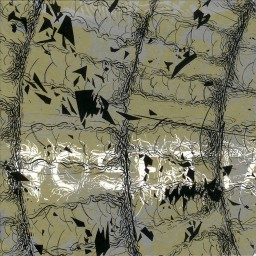 Review by Saxy S for Rosetta - The Galilean Satellites (2005)
Review by Saxy S for Rosetta - The Galilean Satellites (2005)
It is extremely difficult for an artist or band to be as eclectic from the word go as Rosetta were in 2005, and not be seen as pretentious. Most artists wait until they are at least three or four records in before saying "you know what? Fuck it, let's break some rules!" The problem with Rosetta is that were not intending on breaking any rules around the time of The Galileans Satellites. In fact, the band actually seems quite contempt with hanging out with the big boys like Cult of Luna and Neurosis in the post-metal mold (or the more dubious title of "atmospheric sludge metal") in creating a heavy, claustrophobic environment that focuses on instrumental texture as opposed to riffage and solos.
And from the word go, you can tell that Rosetta are not changing any rules. In fact, I would say that The Galilean Satellites is one of post-metal's least influential of the genre's most important albums. I had only just recently listened to this record, while bands like Neurosis, ISIS, Cult of Luna, and even The Ocean Collective had already released their first LPs, and Rosetta borrows heavily from all of them. Most notably, The Ocean and Cult of Luna's intense songwriting. These grooves are pummeling and there is very little room for a breather. When you do receive a moment of reprieve, enjoy it for as long as it lasts because that cacophony of sound will be back soon.
Which brings me to a very interesting point about this record's songwriting. It is remarkably simplistic, but immensely captivating by its gargantuan forms, which allow for ideas to develop slowly and methodically. The gradual crescendo that takes place on the track "Absent" is one of the best displays of dynamic development I have ever heard on a metal album. The reason it is "simplistic" is that the main motif rarely changes. It almost reminds me of a minimalist classical piece from a Steve Reich or a John Adams, where the texture builds intensity and emotional drama.
Of course there is a catch, and that is if the tunes don't develop in a reasonable manner, they get very monotonous very quickly. "Itinerant" is the albums longest track and yet it does nothing. I think Rosetta were aware of this as well because right around the ten minute mark, you begin to hear the tune fade away ever so slowly into an ambient feedback loop with quiet sampled vocals overlayed in the mix. If this was the case, why not make the first section shorter? You would not even need to cut down the second half of the track, which would still make the triumphant return of percussion on the closer of disc 1 "Au Pays Natal" hit with dynamic force.
Since this is a metal album, I would feel inclined to stop here, but i would be remised if I didn't at least mention disc 2. This record consists of ambient/drone tracks that are incredibly synth heavy, minimal leads, and lots of distorted feedback as the closing of "Itinerant" did on the first disc. There lone vocals that appear on this disc are on "Beta Aquilae", and those are heavily distorted and compressed as well. It is kind of interesting at least to hear Rosetta use the second disc as an opportunity to flex their atmospheric muscles in a different environment than executed on disc one.
But that brings me to the elephant in the room that I can no longer ignore: The Galilean Satellites is meant to be listened to simultaneously. Both discs contain five tracks that mirror each other in duration and compliment their sister songs. And while this is a cool idea in concept, the execution is lackluster. The ambient synths and distorted feedback loops of disc two are absolutely caved in on themselves when both discs are played at the same time. Disc one is overwhelming and chaotic at its heaviest, and even during its quieter passages, whatever growth/texture that disc two added is immediately shot down. Here is a question: if disc two was so important to the narrative of The Galilean Satellites, why not just overlay disc two from the start? It might have sounded like pure audio hell, but it couldn't sound much worse than listening to two albums simultaneously!
As it stands, The Galilean Satellites is a very good, bordering on great, dose of post-metal that splits the difference very well between claustrophobic and ethereal. And the way Rosetta shows off their chops from a heavier doom/sludge side, to a more meditative ambient/drone side is commendable. But combined, these two ideas do not work together as well as the band may have initially thought. It isn't the best record in this style, and does not resonate with me personally as much as Panopticon or A Dawn to Fear do, but it does show a band using space efficiently and created a new world from it.
